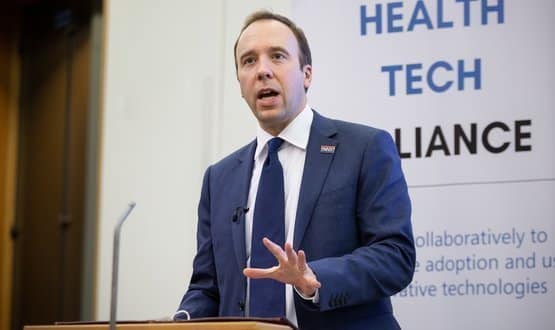‘Informaticians are the backbone of healthcare’
- 29 November 2017

Health Education England’s online workshop on digital readiness is currently underway and some of the early messages emerging from the discussions point towards the need for a joined-up IT system and more recognition for informaticians working in NHS.
The online consultation, which was launched last week, will run for three weeks and close on 13 December, 2017. The aim is to connect with informatics professionals across health and social care to gather their views on digital strategy and understand their priorities, training requirements and developmental needs.
And it has already seen more than 450 individuals sign up – with over 800 ideas, comments and votes – to ensure their voices are heard on how to build a digital ready workforce of the future.
Not just ‘backroom’ staff
Unsurprisingly, one of the key points of discussion has been the need to be recognised as an asset to the health service instead of being treated as ‘backroom’ staff.
“I don’t think we’re given the recognition and support we deserve. We saw the chaos that was caused when IT systems went down earlier in the year. We’re often seen as people who scurry around in the background,” wrote one participant.
“If the health and care system was using data, information, knowledge and technology to its fullest potential we’d be asked our opinion and be able to use our experience and skills to solve a problem. We’d work in partnership with other teams rather than against them, which is what often happens all too often. I’m often just asked to fix a problem instead of being part of the solution from the start.”
Taking the discussion further, another contributor called informaticians the “backbone and spine of healthcare”, adding, that with rapid move towards the use of artificial intelligence and shared systems, the ability to ingest, analyse, share and reuse the data that is collected through AI will be central to consistently improve healthcare in the future.
It’s a sentiment with which several others agreed.
Access to patient records
One more area of frustration was fragmentation of patient records. Several participants expressed concern on the absence of a single and systematic way of data sharing among frontline staff in acute, primary and community care and other parts of health and social care economy.
Using the example of community pharmacy, a contributor highlighted how safe and secure access to electronic patient records has the potential to improve service delivery.
“The public expect those providing treatment to know their medical history and current treatments. That’s not the case in community pharmacy but we expect them to help reduce GP appointments by providing care and medicines on the local high street.
“The Royal Pharmaceutical Society has been calling for EHR access for years and has the backing of Royal College of General Practitioners. We know it is technically possible to have a single record per person and access could be set appropriately according to patient consent. [It’ll] be great to see this moving forward.”
Join the conversation
In addition to these, some of the other themes getting interest from the crowd included defining the role of an informatician; what should they do differently; and examples that have directly helped improve digital maturity of individuals and organisations.
Run by crowdsourcing firm Clever Together in collaboration with Digital Health, the results from this consultation process will form the basis for how Building a Digital Ready Workforce programme will prioritise and invest £6m over the next four years.
Therefore, it’s an opportunity for individuals who work with any aspect of data, information and technology to make sure their voices are heard by the National Information Board. There are no restrictions on the number of comments, ideas and votes that can be shared, and all the contributions will remain anonymous.
You can join the online workshop now by clicking here. Keep an eye on Digital Health for ongoing coverage.





1 Comments
Is EHR access by community pharmacy a real problem – the lack of investment in clinical systems in pharmacy that can talk to GP systems – a two edged sword of course – as the clinical system suppliers are not particularly looking for ‘pharmacy customers’. Every prescription request via pharmacy ends up as a piece of paper that has to be dealt with ‘handled’ physically – every online patient order is effectively 2 clicks and done for staff and clinicians – There is a massive improvement that can be made with pharmacy having online access to at least ‘order’ prescriptions electronically – feels like we remain in 1940’s with a pile of kit that looks like star wars/trek but like the films pretty dummies!
Comments are closed.